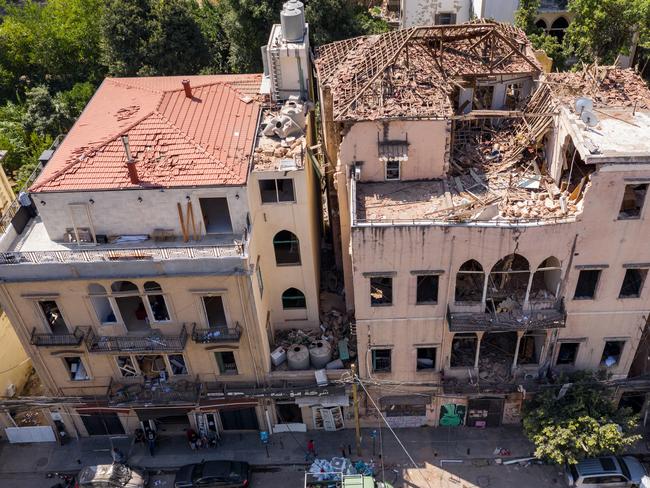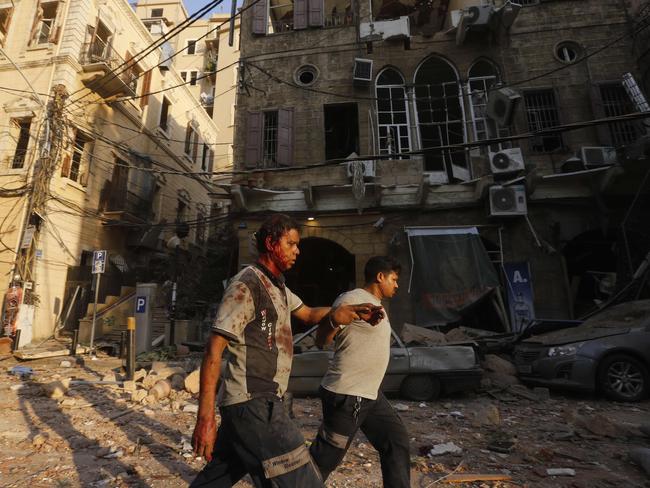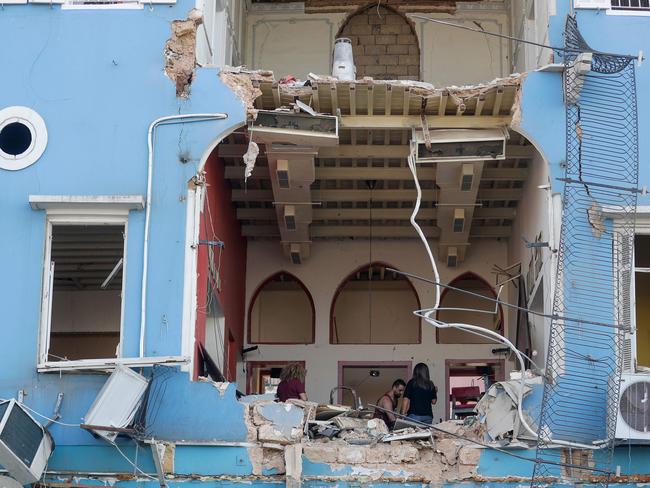Beirut blast: PM resigns as Lebanon reels after deadly explosion
Lebanon descends deeper into chaos after the terrifying Beirut explosion with the government standing down and riots continuing.
News
Don't miss out on the headlines from News. Followed categories will be added to My News.
Lebanese Prime Minister Hassan Diab and his Government have resigned in the wake of the deadly blast that ripped through Beirut.
The cabinet was formed in January with the backing of Hezbollah.
Lebanon was already enduring a collapsing economy, endemic corruption and dysfunctional governance before the blast.
The announcement comes on the third day of demonstrations in the capital, where protesters have again hurled rocks and dodged tear gas in clashes with security forces.
The city’s Governor says more than 200 people are now believed to have been killed as a result of the blast, which occurred when a stockpile of more than 2000 tonnes of ammonium nitrate exploded in Beirut’s port district.
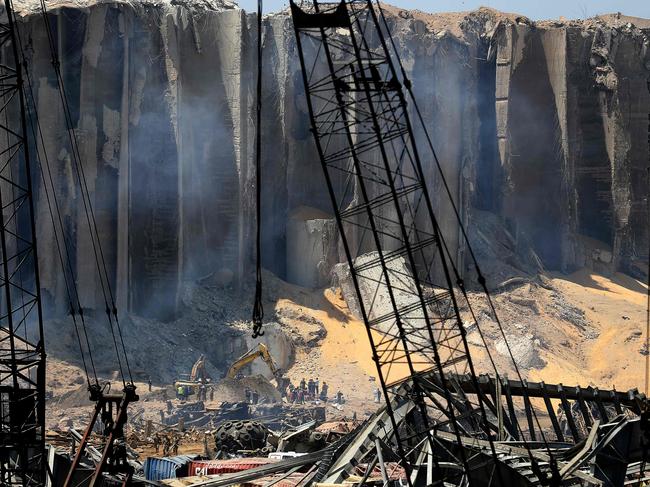
Lebanon’s embattled prime minister announced his resignation on live national TV as his cabinet headed for the door amid widespread unrest over the deadly explosion last week.
“We are still living amid the horror that struck Lebanon and the Lebanese to the core, which was the result of severe corruption in the administration,” PM Hassan Diab said in his speech, according to a tweet by MTV English News.
At least 220 people died in the explosion, which levelled swathes of the city. It is believed to have been caused by an accidental fire ignited by mounds of fertiliser that had been stored at a warehouse there since 2013. The fertiliser had been seized by a Russian cargo ship.
The government is in chaos amid questions about why the deadly cache was left at the port for so long and whether officials ignored warnings about its dangers.
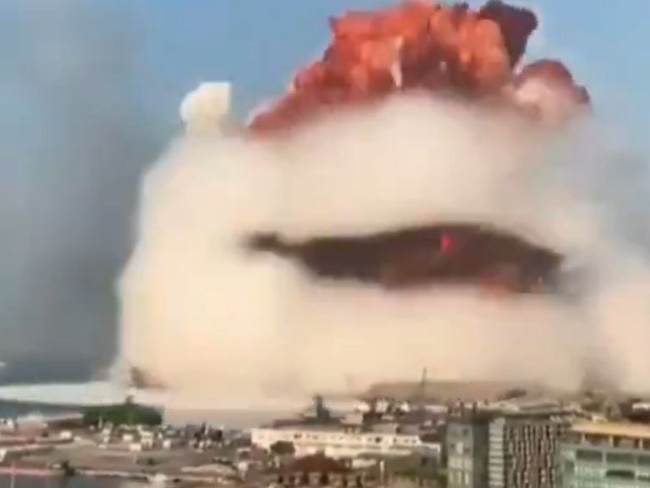
The disaster only fomented unrest that had been brewing in the country over allegations of government corruption and the neglect of its people.
Mr Diab had indicated as recently as two days ago that he wouldn’t go without a fight — offering to stay on at least two months to enable a smooth transition to a new government.
But mounting violent protests over the weekend sealed his political fate.
“We tried to create a transparent state, but unfortunately, once again, every time we try to take a step forward, we are being pushed back one step,’’ Mr Diab said in his resignation address.
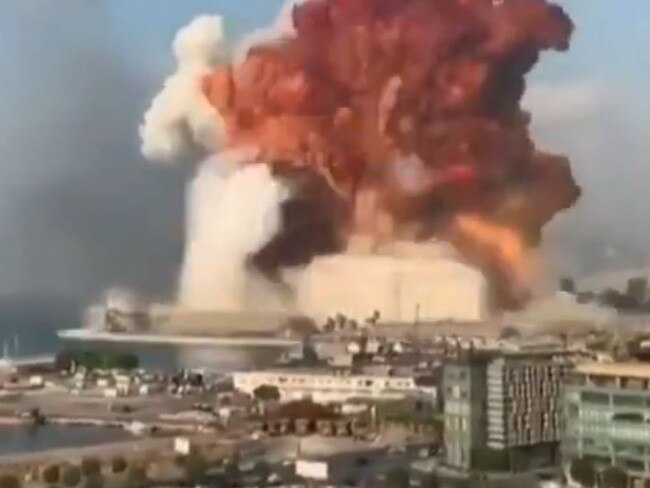
“We led a campaign against these forces, a campaign to change. We tried to bring about the change that the Lebanese people wanted.”
Mr Diab said he would now “step back’’ to help “fight the battle for change alongside them.
“I declare today the resignation of this government.
“Long live Lebanon. God bless Lebanon.’’
BEIRUT VOLENCE CONTINUES AS AUSTRALIA BOOSTS AID
Australia has now pledged a total of $5 million in support for Lebanon in the wake of the Beirut blast.
Prime Minister Scott Morrison attended a virtual conference of 30 countries and world leaders, including US President Donald Trump, where he announced Australia would boost its aid contribution from $2 million to $5 million.
He said Australia was ready to provide more in response to requests as it had longstanding ties to the country through its large Lebanese-Australian community.
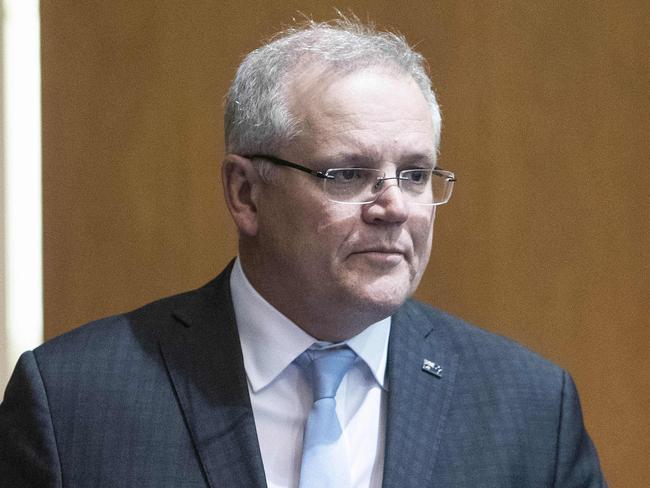
Mr Morrison acknowledged the community was also organising its own donation drives to support those affected by the deadly chemical explosion in Beirut that killed at least 150 people.
The money will be delivered through international partners including the United Nations World Food Program, Red Cross and UNICEF.
The conference was chaired by French President Emmanuel Macron and the United Nations Secretary-General António Guterres.
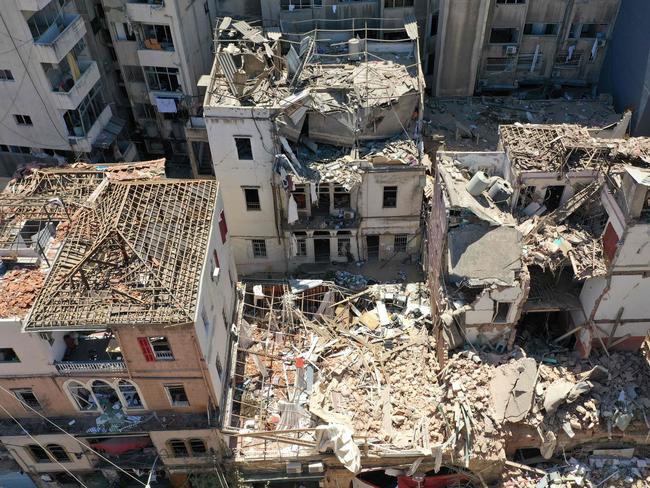
Mr Morrison said he recognised calls for reforms by France, including the resumption of negotiations with the International Monetary Fund that would ensure support delivered more benefits to the Lebanese people.
He also joined leaders and ministers in calling for a full, impartial and credible investigation into the explosions.
Beirut is reeling from the explosion near its port that has prompted protests across the city.

BEIRUT PROTESTS RAGE AS BLAST ANGER GROWS
Lebanese protesters enraged by the deadly explosion they blame on government negligence clashed for three days with security forces in Beirut.
Police fired tear gas in an attempt to disperse protesters hurling stones and shooting fireworks near an access street to parliament, according to reports.
“First they lied to the Lebanese people. Then they stole from the Lebanese people. Then they neglected the Lebanese people. Then they murdered the Lebanese people. And finally today they went to war against the Lebanese people,” protester Maher Khani told NBC News in the US.
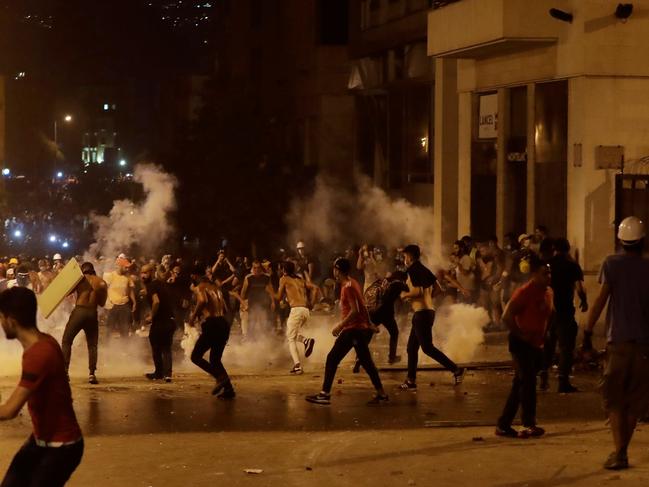
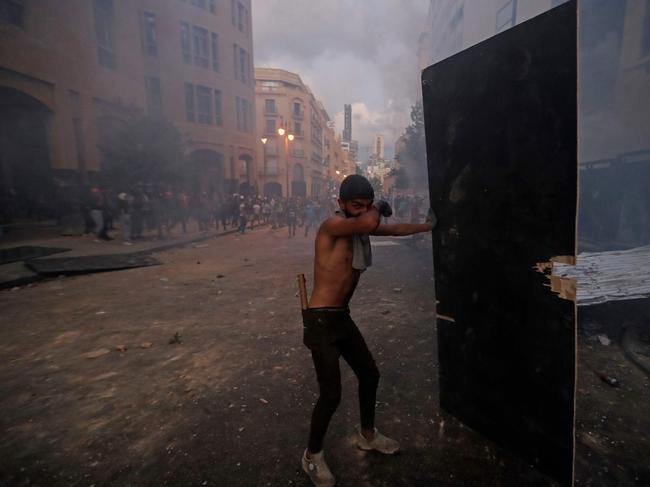
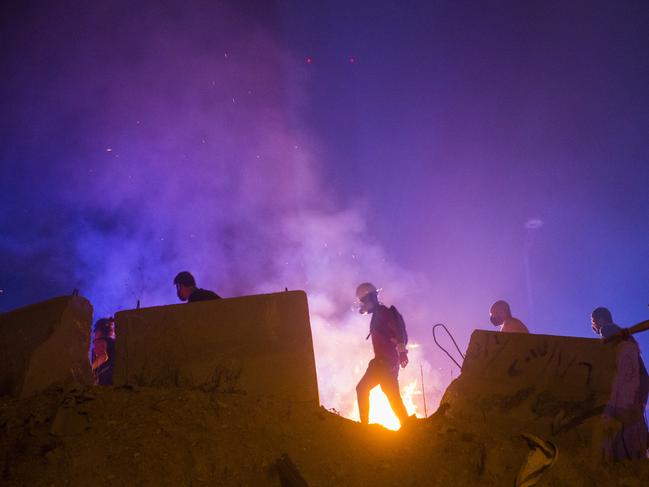
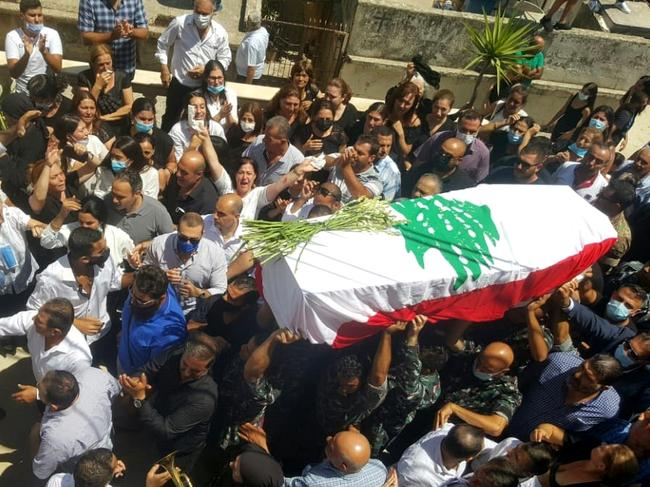
“The Lebanese people are done with them. They have left us with nothing.”
In Lebanon, decades of financial corruption which led to staggering inequality drove Lebanese onto the streets in their hundreds of thousands back in October.
Since then, according to locals, life has got exponentially worse.
The people have faced near economic collapse, a pandemic and the third-largest non-nuclear explosion in the world, which claimed almost 160 lives.
Over the weekend, the youth-led protests were supported by the elderly, children, women and men alike.
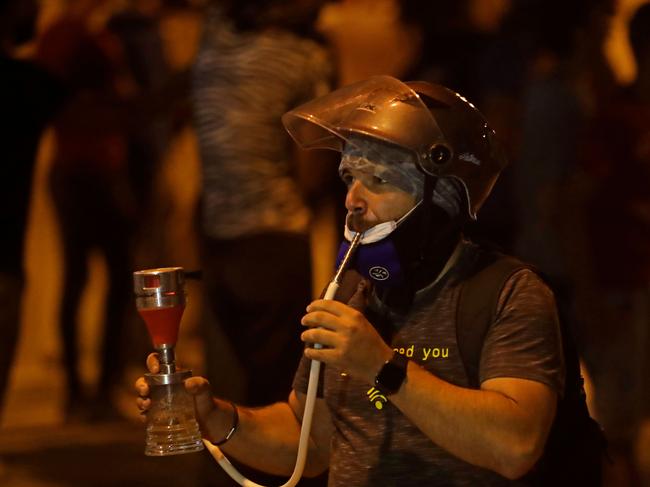
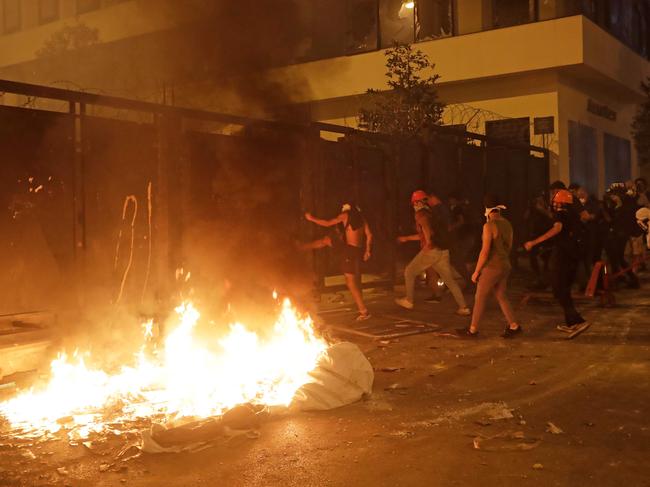
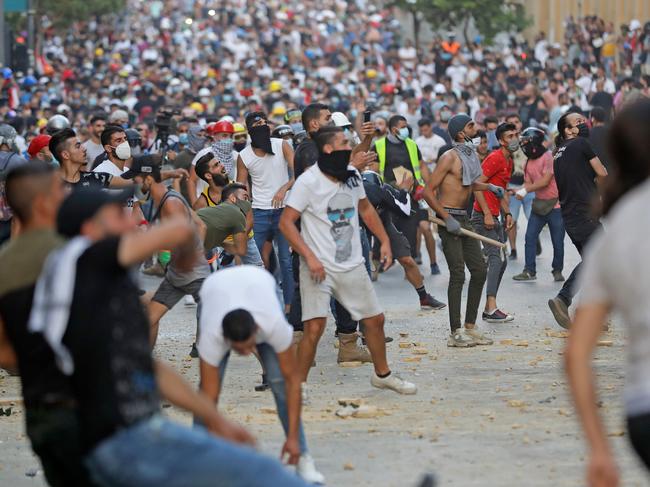
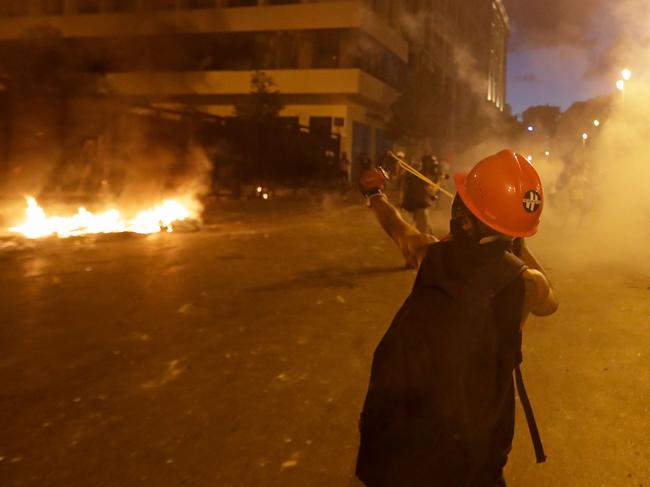
TRUMP CALLS FOR ‘TRANSPARENT INVESTIGATION’
It comes as US President Donald Trump called for Lebanon to conduct a “full and transparent investigation” into the huge explosion that hit Beirut, and expressed his support for protesters demanding reform in the country.
Mr Trump “urged the Government of Lebanon to conduct a full and transparent investigation, in which the United States stands ready to assist,” according to the White House, after he participated in a virtual conference on the international response to the disaster.
“The President called for calm in Lebanon and acknowledged the legitimate calls of peaceful protesters for transparency, reform, and accountability,” the White House added.
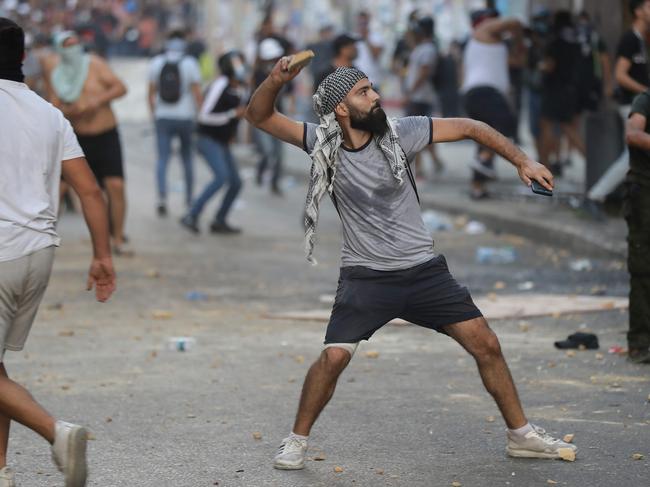
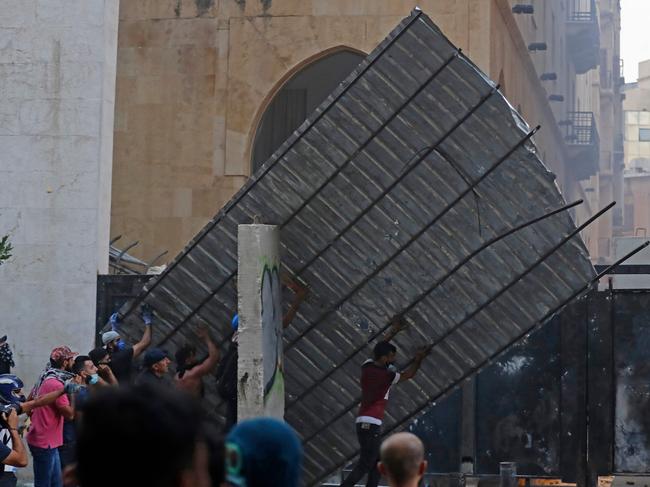
AUSSIE VICTIM AGED ONLY TWO
The protests come as the family of a two-year-old Australian boy killed in the explosion in Beirut told of their heartbreak.
The Department of Foreign Affairs and Trade has confirmed authorities are helping the family of Isaac Oehlers, who was killed when the blast ripped through the Lebanese capital last Tuesday. Isaac is believed to be the first Australian casualty.
It is understood the child's family is from Western Australia and one of his parents is an international aid worker.
“We are heartbroken by the sudden and tragic loss of our beautiful boy following the disaster in Beirut,” the family said in a statement released by the Department of Foreign Affairs and Trade.
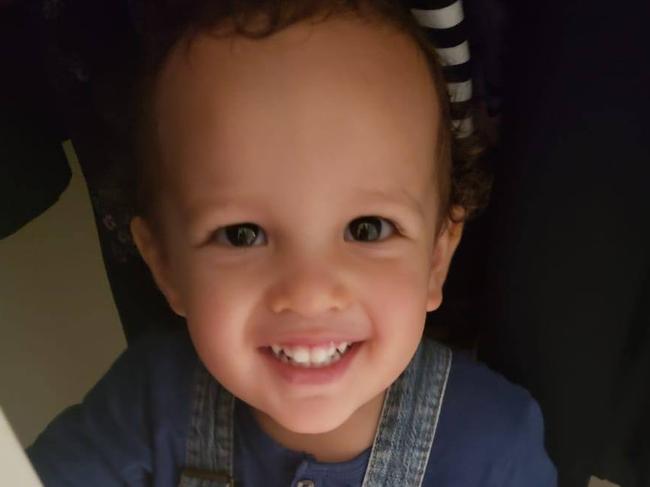
“Isaac was two and will be deeply missed by family and friends. The family would like to thank everyone who has offered comfort and support to us, and would like to express our condolences to everyone in Lebanon who is suffering from this devastating tragedy.”
The tragic news comes just a day after an Australian mother spoke of “living a nightmare” as a humanitarian crisis unfolded in the city.
Syrian refugee Lama Abdulattif and her three Australian children are among an estimated 5000 Australians caught in the carnage.
Prime Minister Scott Morrison said the Australian embassy was one of the buildings impacted by the blast and that it had been “severely compromised”.
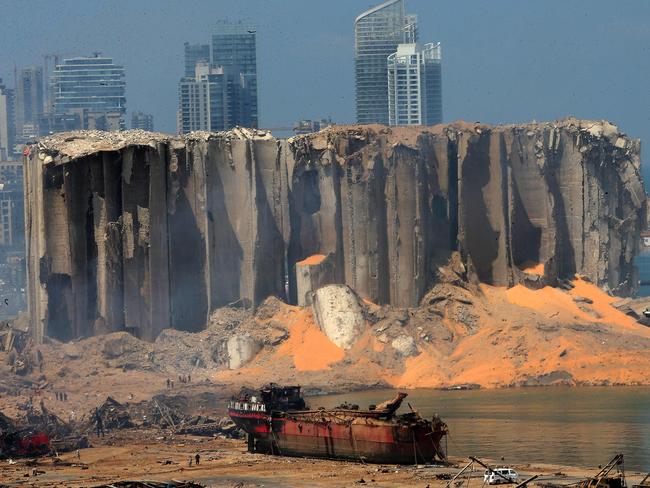
Lebanese services continued to sift through the rubble of the flattened city looking for survivors and victims.
The official death toll is 158 but it is expected to rise significantly in the coming days.
It is estimated about 30,000 people have been left homeless after the blast wiped out large sections of the city.
A fire at a warehouse in Beirut’s port last Tuesday ignited a stockpile of ammonium nitrate that caused the explosion.
The explosion that was felt as far away as Cyprus, and destroyed entire neighbourhoods and wounded at least 6000.
It was widely perceived as a direct consequence of corruption and incompetence, perhaps the most egregious case of callousness on the part of Lebanon’s long-reviled elite.
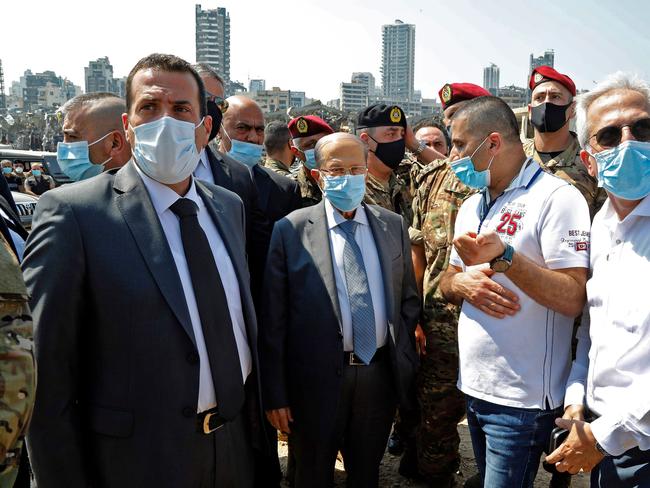
So far 21 people have been detained over the blast, including Badri Daher, director-general of Lebanon’s customs authority.
But Lebanon's President Michel Aoun has rejected calls backed by French President Emmanuel Macron for an international, independent investigation into the blast.
Five politicians have quit since the blast.
Few Lebanese seemed to have any trust that the leadership would incriminate its own in an investigation chaired by senior officials.
Analyst Nasser Yassin of the Issam Fares Institute for Public Policy and International Affairs, said Lebanon’s reviled leaders were clearly seeking to take advantage of the situation.
“The fear is that the authorities will benefit from this great disaster and from the international and Arab attention they are getting,” he said.
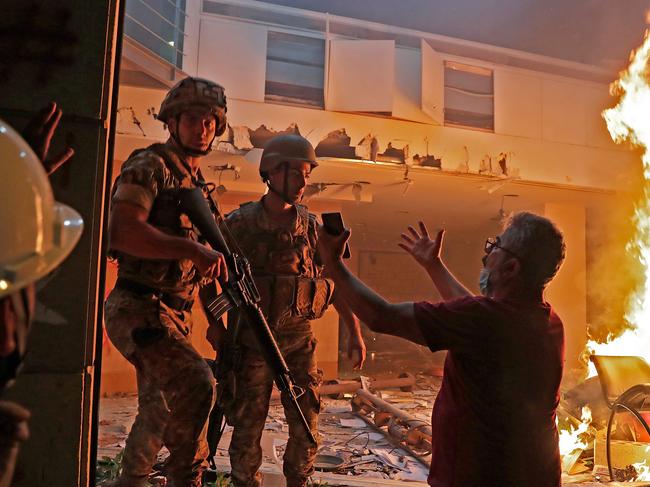
EXTERNAL ‘ROCKET OR BOMB’ MAY HAVE CAUSED BLAST
Meanwhile, Lebanon’s President has for the first time raised the possibility that the explosion which devastated Beirut could have been the result of an “external” attack using a bomb or a rocket.
Mr Aoun said the investigation into the massive explosion in Beirut that killed more than 150 people and injured some 5000 would seek to determine whether a rocket, bomb or other “external interference” had a role in the disaster, according to a report.
“The cause has not been determined yet. There is a possibility of external interference through a rocket or bomb or other act,” Mr Aoun said.

MORE NEWS:
Samsung shocks fans with surprise 7-gadget launch
Aussie workers set for $2bn superannuation boost
Ellen’s famous TV DJ lifts lid on show’s ‘toxicity’
He said the probe was being conducted on three levels.
“First, how the explosive material entered and was stored … second, whether the explosion was a result of negligence or an accident … and third, the possibility that there was external interference.”
Mr Aoun previously blamed negligence in the storage of 2750 tons of ammonium nitrate for years at the capital city’s port.
It’s believed that the blast occurred when a fire ignited the ammonium nitrate. The cause of the initial fire is unknown.
Mr Aoun said he asked France for satellite images to see if there were warplanes or missiles in the air at the time of the blast.
This differs from the main narrative of recent days, which focused on investigating Lebanese port and customs officials for negligence.
